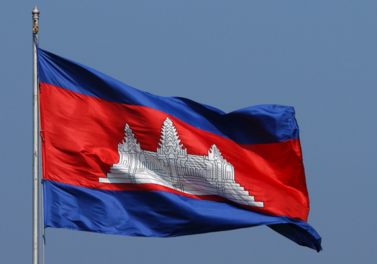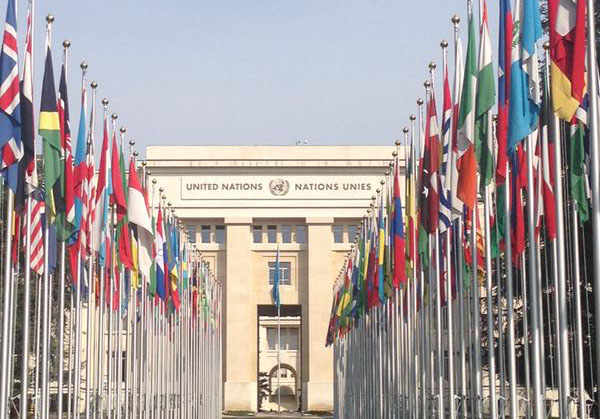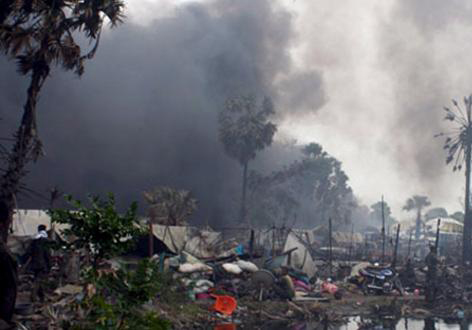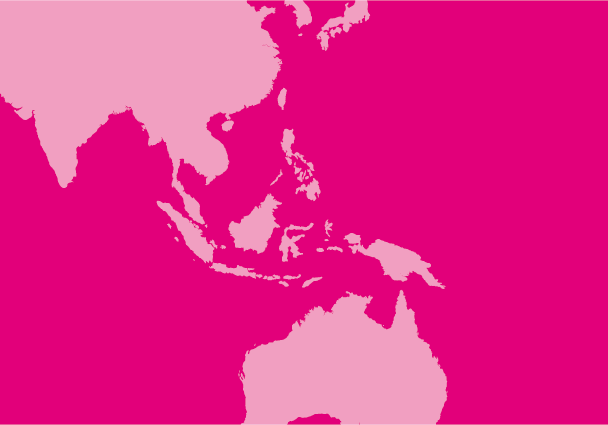
Jul 4, 2016
The ICJ and other human rights groups have released a joint statement highlighting concerns about Cambodia raised at the 32nd Session of the Human Rights Council.
In addition to the ICJ, the statement has been signed by the Asian forum for Human Rights and Development (Forum-ASIA), the Cambodian Centre for Human Rights, the Cambodian League for the Promotion and Defence of Human Rights (LICADHO), Civil Rights Defenders, the International Federation for Human Rights and the World Organisation Against Torture (OMCT).
The statement can be downloaded here: Cambodia-Joint Statement-HRC-Advocacy-2016-ENG (full text in PDF)

Jun 29, 2016
The ICJ has joined a group of 244 civil society organizations, spanning across all regions of the world, to call on States at the UN Human Rights Council to cosponsor the resolution on civil society space.
The groups also call to vote against amendments proposed by the Russian Federation that would weaken it, and to vote in favour of the resolution itself.
The vote is expected to take place later this week.
The draft resolution, presented by a cross-regional group of States comprising of Chile, Ireland, Japan, Sierra Leone, and Tunisia, was developed through broad consultation with States and civil society and in the past was adopted by consensus.
The draft resolution welcomes the adoption of the 2030 Agenda for Sustainable Development, and recognizes the key role of civil society in achieving the goals. Once adopted, the resolution will be a substantive contribution to the Council’s work to protect civil society space.
However, fifteen amendments tabled by the Russian Federation seek to remove these essential elements from the draft resolution, and insert language to justify illegitimate restrictions on civil society that would undermine the protections of international human rights law. Many of the amendments challenge previously agreed HRC or General Assembly language.
If adopted, the amendments would undermine international efforts to safeguard space or civil society, including because they would effectively:
- Reject the expert guidance and practical recommendations made by the UN High Commissioner on Human Rights on civil society space, including to remove substantive recommendations to states on ensuring: a supportive legal framework for civil society and access to justice; public and political environment for civil society; access to information; public participation of civil society actors, and human rights education;
- Remove or otherwise limit commitments to protect and promote the right to freedom of association, in particular civil society’s right to access resources for its vital work, and to be free of arbitrary registration and reporting requirements that seek to hinder the work and safety of civil society;
- Remove references to the gravity of threats civil society faces, including illegitimate restrictions to their rights to freedom of expression, association and peaceful assembly, as well as reprisals against those seeking to cooperate or cooperating with the United Nations and other international bodies;
- Narrow the understanding of “minority groups”, by seeking to include only a limited and under-inclusive list of protected characteristics to the exclusion of others recognised under international human rights law;
- Remove reference to the term “human rights defenders”, as well as previous work of the HRC on their protection;
- Remove concerns that restrictions on civil society may limit the United Nations in achieving its purposes and principles, and removing the emphasis on the Universal Periodic Review as an important mechanism to create space for civil society.
The full letter and list of organizations can be downloaded in PDF format here: HRC32-OpenLetter-CivilSocietySpace-2016-EN

Jun 21, 2016
The ICJ has joined other leading NGOs in an open letter urging the UN High Commissioner for Human Rights to set out clear benchmarks for assessing progress in Sri Lanka’s implementation of the Human Rights Council resolution on accountability and reconciliation.
20 June 2016
To: The UN High Commissioner for Human Rights
Dear High Commissioner,
Subject: Open letter on the oral update on Sri Lanka at the 32nd session of the UN Human Rights Council
We write to you ahead of your oral update to the UN Human Rights Council on Sri Lanka. October 1, 2015 marked an important milestone in the UN’s engagement with Sri Lanka. Sri Lanka joined the international consensus and cosponsored resolution 30/1 at the UN Human Rights Council. The resolution called on the Office of the High Commissioner to “assess progress on the implementation of its recommendations and other relevant processes related to accountability reconciliation and human rights.” The resolution identified your forthcoming oral update as a midway point in this process of assessment prior to a comprehensive progress report next March.
While the government’s assurances on progress have been plentiful its performance on the ground has been mixed and not befitting expectations outlined in your report and in the resolution as well as those of victims and people on the ground. There have been some positive developments on international cooperation such as the government’s recent decision to ratify the Convention against Enforced Disappearances and Convention on the Rights of Persons with Disabilities, the extension of standing invitations to Special Procedures and the visit of a number of Special Procedures, your own visit and that of other UN officials.
At the same time there have been mixed signals on the government’s commitments made through the October resolution, at the highest level of the government. There have been distressing reports on the ongoing use of arrests under the Prevention of Terrorism Act (PTA) instead of the regular criminal code. The PTA is a draconian law consistently condemned by UN bodies and officials and which the government had pledged to repeal as part of its October commitment. Repealing the PTA and dealing with the outstanding cases of those still detained under the law should be a foremost priority.
While there is more space for freedom of expression and assembly, incidents of intimidation are still taking place. For example the WGEID reported incidents of intimidation of those who met them, and persons planning to meet you on your visit reportedly were also subjected to intimidation a day before your visit. Some land occupied by the military has been released, but much has not been.
A draft law of the Office of the Missing Persons (OMP), one of the four transitional justice mechanisms committed to by the government, has been published with minimal consultations, and before the Task Force established to conduct consultations had even begun face-to-face consultations with affected communities and citizens. It is crucial that laws for the other three mechanisms are passed by March 2017, but unlike the OMP, with greater transparency and allowing sufficient opportunities and time for genuine consultations. It is also important to clearly indicate the inter-linkages and complementarity of the different mechanisms and how they will together guarantee rights to truth, criminal justice, reparations and guarantees of non-recurrence, and not undermine any of these rights and the working of each mechanism.
We are convinced that the government needs to meet clear benchmarks in relation to commitments it had made to its own people and the international community. Mindful of the long history of failed efforts towards reconciliation and accountability for human rights violations in Sri Lanka, we are worried that in March 2017, the absence of clear progress may cause a loss of confidence in the current UN backed process for justice, accountability and reconciliation.
Member states of the Council have indicated that their engagement with the Sri Lankan government will be guided by your oral update on the implementation of the October Council resolution on Sri Lanka. This expectation has been heightened by your and your staff’s visits to Sri Lanka and those of the Special Procedures. Thus, we believe it is crucial for your oral update to identify areas where progress has been made, as well as areas where there is a lack of progress and incorporate clear benchmarks that include immediately achievable steps.
At the end of your visit to Sri Lanka in February this year, you identified some of these steps in stating that “the military needs to accelerate the return of land it has seized and is still holding to its rightful owners” and “the size of the military force in the North and the East can be reduced to a level that is less intrusive and intimidating, as a first step in security sector reform.”
In your statement to the current session of the Council on June 13, you identified a comprehensive transitional justice strategy as critical for the government’s implementation of its commitments. In this regards, the establishment, without delay, of a judicial mechanism with full participation of international judges, lawyers and prosecutors, is an element of the Council resolution (and the OISL and OHCHR reports on a judicial mechanism) that represents an essential benchmark for the credibility of the overall process.
Please accept the assurances of our highest consideration
Asian Forum for Human Rights and Development (FORUM-ASIA)
Franciscans International
Human Rights Watch
International Commission of Jurists
International Movement Against All Forms of Discrimination and Racism (IMADR)
International Service for Human Rights
The open letter can be downloaded in PDF format here: UN-HRC32-SriLanka-OpenLetter-2016

Jun 6, 2016
The ICJ has urged the ASEAN Intergovernmental Commission on Human Rights (AICHR) to ensure that civil society organizations that apply for consultative status with the AICHR are provided with notice and an opportunity to respond to any objections before a decision is taken.
The AICHR was established in 2009 to promote human rights within the ASEAN region. As part of its mandate, the Commission regularly enters into formal consultative relationships with civil society organizations.
These consultative relationships allow civil society organizations to engage in dialogue with the AICHR in order to keep the AICHR apprised of human rights issues in the ASEAN region and to work jointly to advance human rights.
However, the ICJ is concerned that the AICHR, unlike other human rights bodies, has not explicitly provided in its procedures that civil society organizations should have an opportunity to respond to objections prior to any decision being taken, and in practice AICHR has denied consultative status to organizations (including the ICJ), without providing such an opportunity.
As a result, key voices may be excluded from contributing to important discussions on human rights, the ICJ says.
“Engagement with civil society organizations is central to the AICHR’s mandate,” said Prof. Sir Nigel Rodley, President of the ICJ.
“When the AICHR decides whether to extend consultative status to a civil society organization, it should make its decision based on all available information,” he added.
In a letter to the AICHR, the ICJ called on the human rights body to create a fairer and more effective process by granting civil society organizations applying for consultative status the right to respond to any objections made against them.
The ICJ noted that many intergovernmental organizations already provide this right to civil society organizations.
The United Nations Economic and Social Council, the Organization of American States and the Council of Europe all permit civil society organizations to respond to objections.
The ICJ also noted that a process of response would allow the AICHR to make more informed decisions regarding its consultative relationships and would reduce the administrative costs and increase the efficiency of the AICHR.
Under the current system, civil society organizations that are denied consultative status with the AICHR must submit a full revised application, and the AICHR must review the revised application in its entirety.
In its letter, the ICJ observed that this process is unnecessarily burdensome for both civil society organizations and the AICHR.
The ICJ’s letter comes after the AICHR denied an earlier request by the ICJ for reconsideration. On 16 February 2016, the ICJ received notice that its application for a consultative relationship with the AICHR had been denied.
On 24 March, the ICJ submitted a request for reconsideration addressing comprehensively the concerns raised by the AICHR. On 3 June 2016, the ICJ received a letter from the AICHR stating that the AICHR process does not provide an appeal procedure.
The ICJ has therefore clarified in its latest letter that it is not seeking an appeal but rather for the AICHR to enhance and adapt its existing working methods to incorporate a fairer and more transparent practice of notice and opportunity to respond, and to reconsider its decision concerning the ICJ in line with such working methods.
Contact:
Emerlynne Gil, ICJ’s Senior International Legal Adviser for Southeast Asia, t: +66 840923575; e: emerlynne.gil(a)icj.org
ASEAN-Letter to AICHR-Advocacy-Open Letters-2016-ENG (full text of letter, in PDF)

May 31, 2016
Today the ICJ issued an open letter to Philippine President-Elect Rodrigo Duterte, expressing concern regarding statements he made in support of reinstating the death penalty.
In the letter, the ICJ noted that the resumption of executions would constitute a violation of international law under the 2nd Optional Protocol to the International Covenant on Civil and Political Rights (ICCPR), which the Philippines has ratified.
The ICJ also emphasized that there is no empirical evidence proving that the death penalty deters crime and called upon the president-elect to focus on more effective, evidence-based approaches to crime prevention.
Philippines-Letter to President Duterte-Advocacy-Open letters-2016-ENG (full text in PDF)









